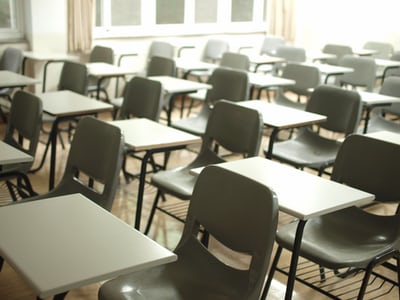Classroom Discrepancies Create Differences in Student Learning

Recently, I’ve noticed more and more classroom discrepancies within my own classes. I’ve noticed that when talking to my friends, there are large variations in our own learning due to our different teachers, despite the class titles being the same. Every teacher is different; I understand that. However, I don’t believe it’s fair that students who sign up for the same class receive wildly different educations based on their teachers.
Most of my friends and I all took the same physics class this year. Despite that, our respective teachers have made our learning environments and contents vastly different. This year, I’ve struggled a lot in physics. I’ve failed time after time to grasp the content of each unit, and wondered if my friends felt the same. I was shocked when my fellow junior, Amanda Onnen, told me that physics was easy. I talked to a few other people in her same class, and they all felt the same way. They had no issue understanding the concepts. We were all in the same level of physics, but the differences in our learning was jarring.
Now this discrepancy wasn’t simply because my friends were smarter than me, in fact, I’m usually the one getting better grades. After much discussion, it seemed that the discrepancy was due to the style of teaching happening in each classroom. When comparing the worksheets we were given, mine all seemed a lot more complicated. Another student, Heather Stembel, even told me her teacher gives them breaks throughout the class, and he is very involved with each step of learning. Yet in my own class, I am being taught from the board the whole time with no clarity, and as the concepts get more complex, I lose track. However, my friends never seem to feel that way.
Now, my intention is not to hate on my teacher, because he is genuinely a great one; I know many people that thrive with his teaching style. However, I find that the differences aren’t fair when not all students learn the same way. Yet, despite this, we have no choice about how we will be taught all year long.
Furthermore, it is not just in that class that I’ve seen differences. Every single subject faces these issues because there is no required curriculum for the teachers. I do consider that freedom to be a good thing because it makes classes more interesting and teachers can teach to their strengths and be creative. However, some make use of that creativity more than others, and then distinct lines and differences are made between classes, rendering them dissimilar and ultimately not the same course at all.
In my history course, I found myself really loving my experience and the content. However, when I spoke with Junior Jacob Golota about his experience with another teacher (in the same course), his learning experience was extremely varied. He shared that they do quite a bit of group work and document analysis, which is very different from my class. While we do have some similar assignments, one major difference is that my teacher is very heavily involved with us throughout the entire class. Meanwhile, Golota indicated that his teacher will usually talk to them in the beginning, but then let them go and work on assignments with their groups. While it may be the same level history class, the everyday content is seemingly entirely different.
It seems almost impossible to keep each class completely the same. I am certain that teachers would not want that either. In fact, in talking with some of my instructors, I find that they truly prefer the freedom of designing their own course (within limits). Still, I think some of these large discrepancies between classes are unfair to students. Every teacher’s style is different, and so is every student’s learning style. When assignments and presentations are so vastly different, you may find students coming out of classes with completely different skill sets.
It really seems unfair to students that some classes are exceptionally more difficult than the same named course down the hall. Additionally, when assignments don’t even have the same proposed objectives, students get very different educations. According to District 214, “District 214 Community Education offers high-quality youth and adult enrichment programming.” From my experience, that just isn’t true. If our District wants to promote their high-quality education, changes need to be made in the unfair education system that every student in our school experiences. Students deserve to have similar experiences and similar curriculums in courses that are named the same. It simply makes no sense that same-named courses can yield outrageously different results.

